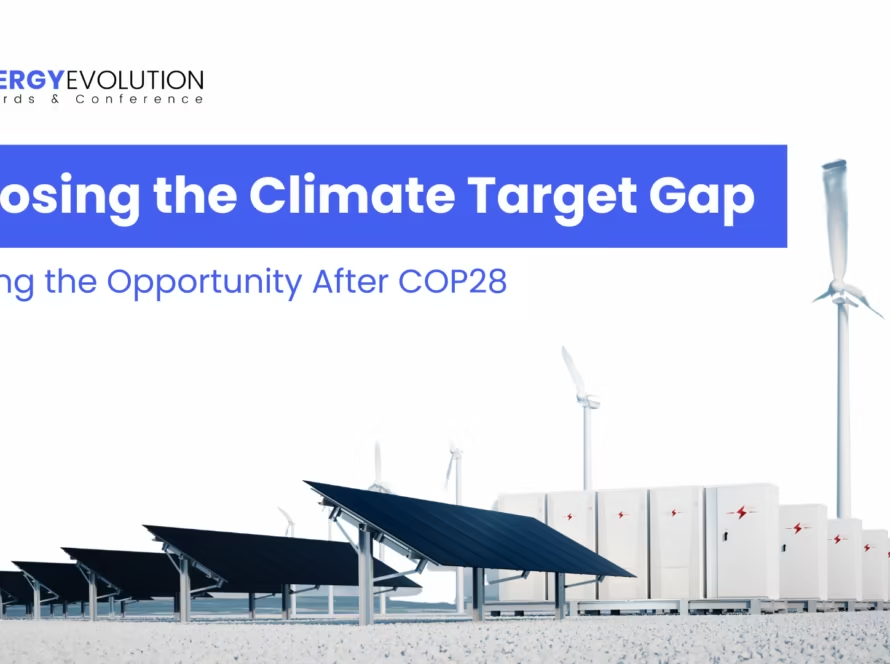Discover how scaling renewable energy worldwide can reverse climate change, boost economies, and transform communities for a sustainable future.
Global warming, driven largely by greenhouse gas (GHG) emissions from fossil fuel use, remains one of humanity’s most urgent challenges. Since energy systems are the primary source of these emissions, shifting toward renewable energy is central to any meaningful climate solution.
The Power of Renewable Energy
Renewable energy comes from naturally replenishing sources—solar, wind, hydropower, bioenergy, ocean energy, and geothermal. Unlike fossil fuels, these sources emit little to no GHGs during operation, offering a sustainable way to meet growing energy demands.
The impact is already visible. In the European Union, renewable adoption has helped achieve a more than 37% reduction in emissions by 2023 compared to 1990 levels. Beyond electricity generation, renewables are transforming industries, transportation networks, and even agriculture through greener practices.
The momentum is also strong in the Middle East. In Dubai, the Mohammed bin Rashid Al Maktoum Solar Park has reached 3,860 MW capacity, supplying over 21% of the city’s electricity from clean sources. Once fully operational, the project is expected to cut carbon emissions by 6.5 million tonnes annually. Across the region, Saudi Arabia and Jordan are investing heavily in clean power, aiming to derive up to 50% of their national electricity from renewables by 2030. These examples show that even fossil fuel–dependent nations can pivot toward sustainable energy while meeting rising demand.
Social and Economic Benefits
The benefits of renewable energy go far beyond climate action:
- Improved public health due to reduced air pollution.
- Enhanced energy security and resilience to volatile fossil fuel markets.
- Economic growth through new investments, jobs, and sustainable technological innovation.
- Expanded energy access in underserved regions, supporting global development goals.
In the Middle East, these benefits are increasingly evident. Egypt’s target of 42% renewable electricity by 2030 could offset millions of tonnes of CO₂ while improving air quality and creating green jobs. Jordan, for its part, is expanding solar and wind to account for 27% of its electricity mix, simultaneously lowering emissions and strengthening energy independence.
Policy and Solution Pathways
Global institutions such as the IPCC and the United Nations emphasize that scaling renewables requires strong policy support, including:
- Financial incentives and subsidies for clean projects.
- International cooperation and technology transfer.
- Grid modernization and robust energy storage systems.
- National strategies aligned with the Paris Agreement and net-zero by 2050.
A Call to Action
The science is unequivocal: to limit the worst climate impacts, global emissions must be nearly halved by 2030 and reach net-zero by 2050. This demands phasing out fossil fuels and accelerating investment in energy that is clean, affordable, and accessible.Between 2015 and 2024, global renewable electricity capacity grew by approximately 2,600 gigawatts—a 140% increase—vastly outpacing fossil fuels, which added only 640 GW over the same period. While fossil fuels still account for nearly 60% of global electricity generation, renewables are steadily reshaping the landscape.
Looking Ahead
The shift is gaining momentum, catalyzed by platforms such as the Energy Evolution Awards & Conference 2026 (February 10–11, Pullman Dubai Downtown). The event will bring together policymakers, innovators, investors, and industry leaders to showcase advancements in solar, wind, hydrogen, and energy storage—while celebrating pioneers driving clean energy transitions.
Conclusion
Scaling up renewable energy is more than a climate strategy—it is the foundation for a safer, healthier, and more equitable future. Middle Eastern success stories show that ambitious targets paired with tangible projects can not only slash GHG emissions but also build low-carbon, resilient economies.
By embracing renewable energy, nations can turn the tide on climate change while unlocking sustainable growth and development for generations to come.
References
UN:Renewable energy – powering a safer and prosperous future
European Environment Agency:Climate change mitigation: reducing emissions



